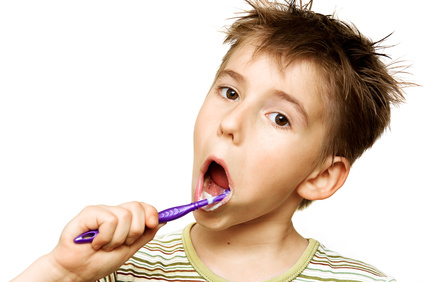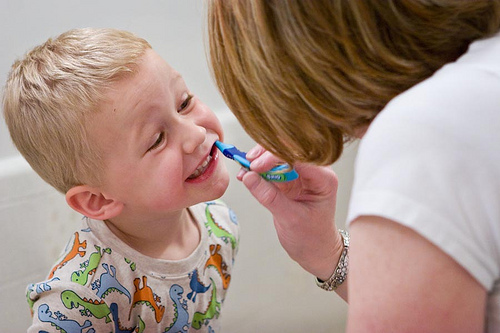
by Claire York
It may seem stereotypical to say that few people enjoy going to the dentist, but, well—few people really do. While walking out of the dentist’s office with a mouthful of professionally cleaned and whitened teeth can lead to a day of smiles, walking out of the dentist’s office after paying for a root canal or pulled tooth is a drag—whether your insurance kicks in for the bill or not.
Pain and expense often rival the need to maintain a healthy set of teeth. While dental visits are necessary to avoid problems with your pearly whites, they can be minimized by trying the following tips designed to keep you out of that dentist’s chair as much as possible.

Dental Floss—Not Just Any Old String Will Do…Or Will It?
It’s part of the dentist’s mantra—brush and floss—but it is an essential part of maintaining a healthy mouth. Of course, there is a myriad of floss and flossing products on the market, prompting many to wonder which one is right for them.
Two recent studies, one published in the Journal of Periodontology and another one published in the Clinical Journal of Dentistry, demonstrated that it doesn’t appear to matter what flossing product you use, whether it’s unwaxed floss, woven floss, or even an electric flosser, so long as you do it properly and often—at least once a day and probably more if you want to avoid the dentist.
Keep floss handy in places like your office desk, handbag, or backpack. Keep some in the glove box of your car so that you can squeeze in some flossing after a meal at your favorite restaurant. Experts assert that the role of flossing cannot be underestimated when it comes to preventing periodontal disease.
Brushing Correctly Is More Important Than Your Brand of Toothpaste
At least, this is what some dental insurance companies like Delta Dental assert. If your toothpaste contains fluoride, it’s probably just fine. Most dentists insist that fluoride is essential for healthy teeth.
Fans of natural toothpastes should also feel comfortable using brands like Tom’s of Maine. The real trick, however, to maintaining clean teeth is brushing them properly.
The whole idea behind brushing is to remove plaque; your brushing action must remove this sticky substance that can lead to tooth decay.
Keep in mind that plaque is a catch-all word that stands for food, bacteria, and other debris; you don’t want that stuff hanging around inside your mouth and getting rid of it effectively can also keep you away from your dentist for longer periods of time.
Proper brushing should cause the toothpaste—just a small amount is all that’s needed—to foam and coat all of your teeth. Cleaning your teeth a few times a day is likely to make a stranger of your dentist and your mouth will feel great too!
Watch What You Eat
Since everyone is already monitoring their eating habits for their weight, they might as well eat right for their teeth, too. Including teeth-friendly foods and avoiding foods that are known to damage teeth is a great way to help you visit the dentist less often.
Foods that are rich in vitamin C, calcium, vitamin B12 and folic acid are essential for healthy gums and teeth. Sugary foods should be eliminated! Ok, be for real—so you’re not going to eliminate them, but at least try to minimize them and always brush after a rendezvous with soda pop or candy.
Keep in mind, that while sugar-free gum may not lead to sugar-induced tooth decay, it can wreak havoc with your fillings. Try to avoid foods that could break a tooth or destroy your fillings if you want to stay away from the dentist.
Keep Some Tools of the Dental Trade Around
No one is suggesting you purchase a dental drill and fill your own cavities, of course, but having a few instruments used by dentists and dental hygienists is a good idea. The most important tool is your toothbrush and most experts assert that a brush with a natural bristle is more effective and gentler than one with nylon bristles.
General dental instruments like explorers (also referred to as picks) and mirrors can help you locate debris that, perhaps, flossing or brushing did not eliminate.
A dental scaler can also help you remove debris more effectively than just brushing. It may not be needed every day, but you may notice that its use can lead to a cleaner mouth after eating certain foods.
These items should only be used to move surface debris; do not prod deeply within your gums, for instance, or you might create a dental emergency.
Wrap Up
It is important to see your dentist from time to time—accidents happen; a filling might fall out or a tooth might crack on a walnut or hard candy (that you’re not supposed to eat). At such times, it is necessary to visit the specialist in order to avoid more serious dental issues that require more costly dental fixes.
However, by making a serious commitment to proper dental hygiene and taking the suggested preventative measures, you can generally schedule fewer dental visits and still maintain your healthy smile.
(Claire York has a background in oral health after many years as a dental nurse. She’s now a freelance health writer helping companies like The Invisible Orthodontist reach new audiences online.)




It’s recommended to visit the dentist twice a year. Following these recommendations can help keep your teeth healthy. If you can’t brush your teeth after a meal or having a sugary drink, try and at least rinse your mouth with water.